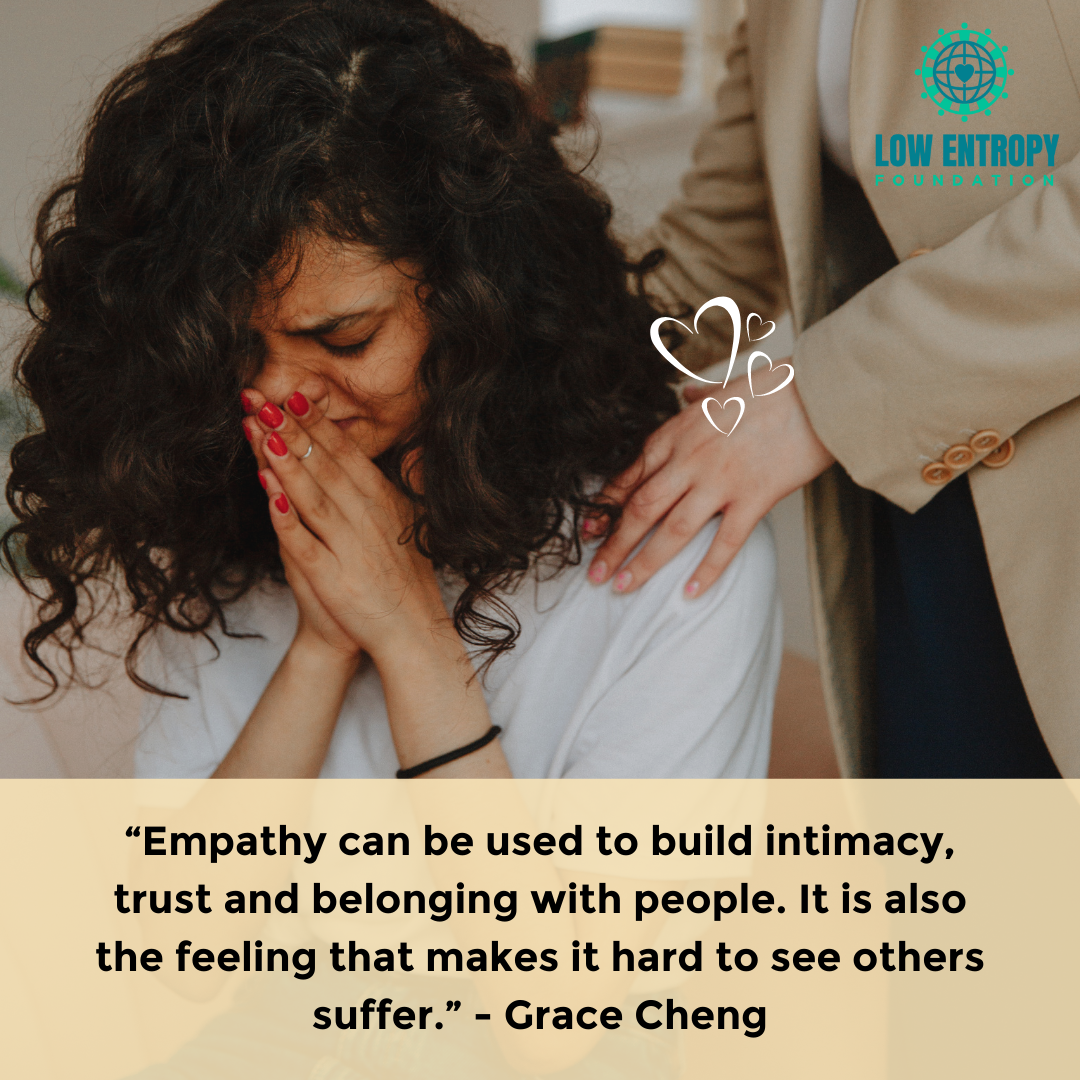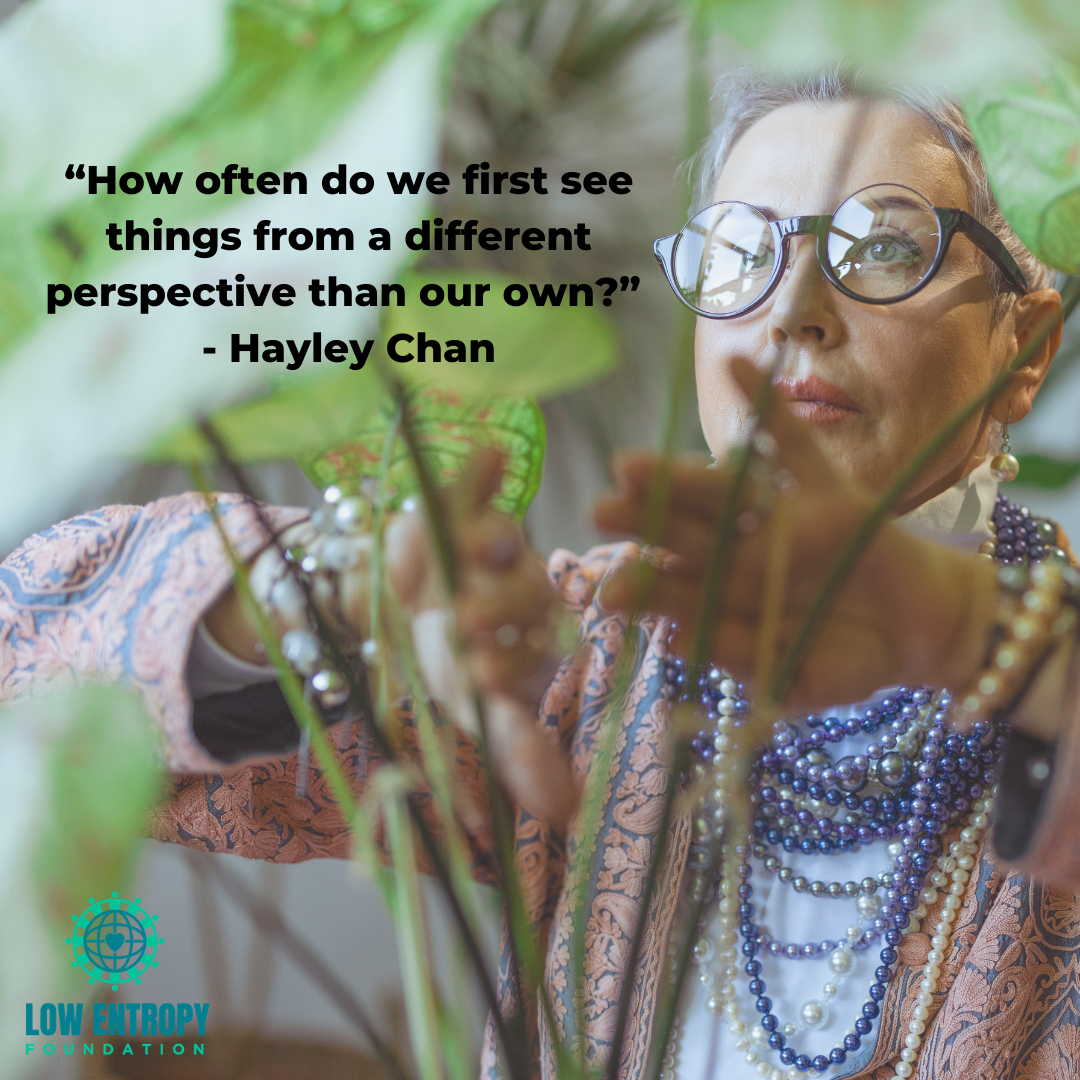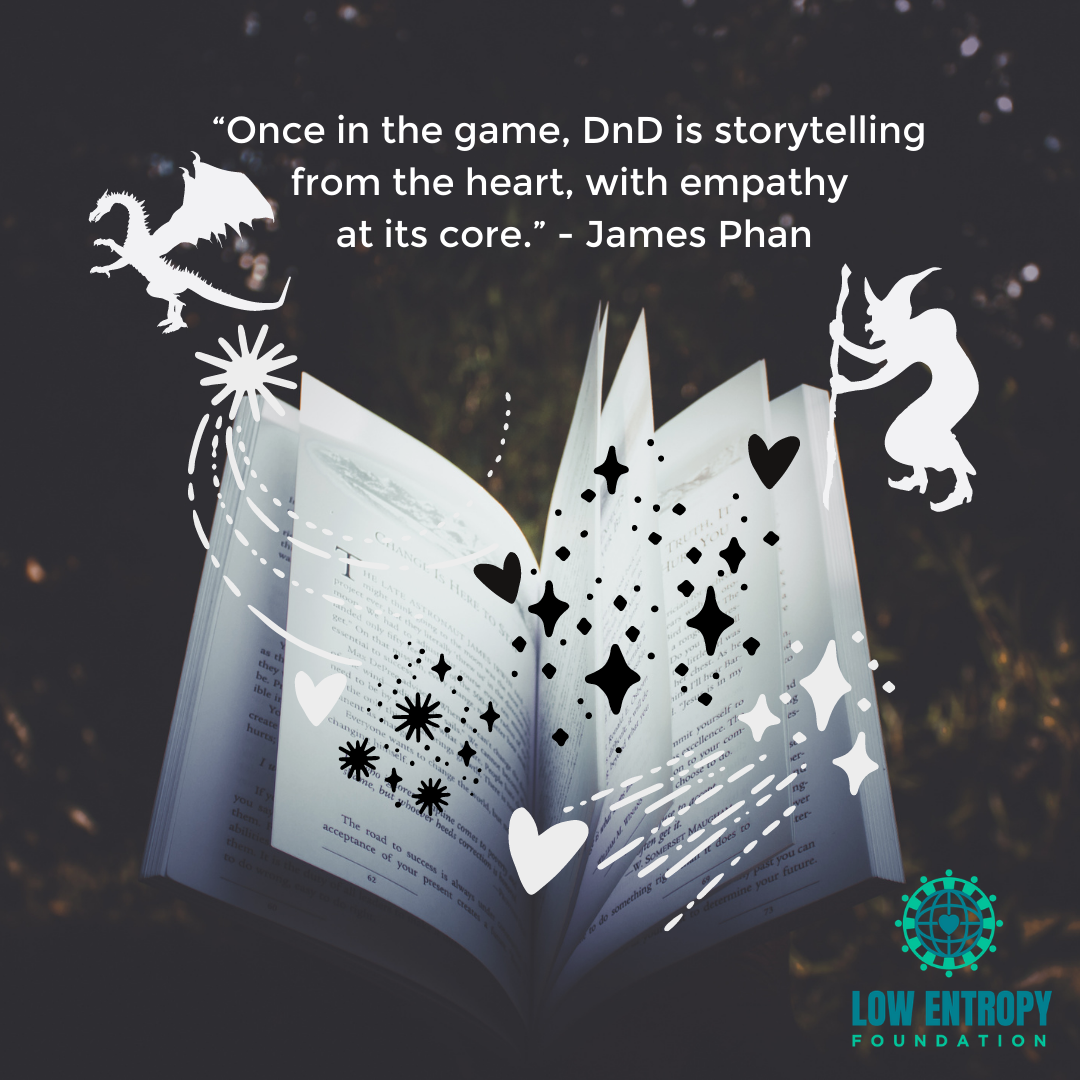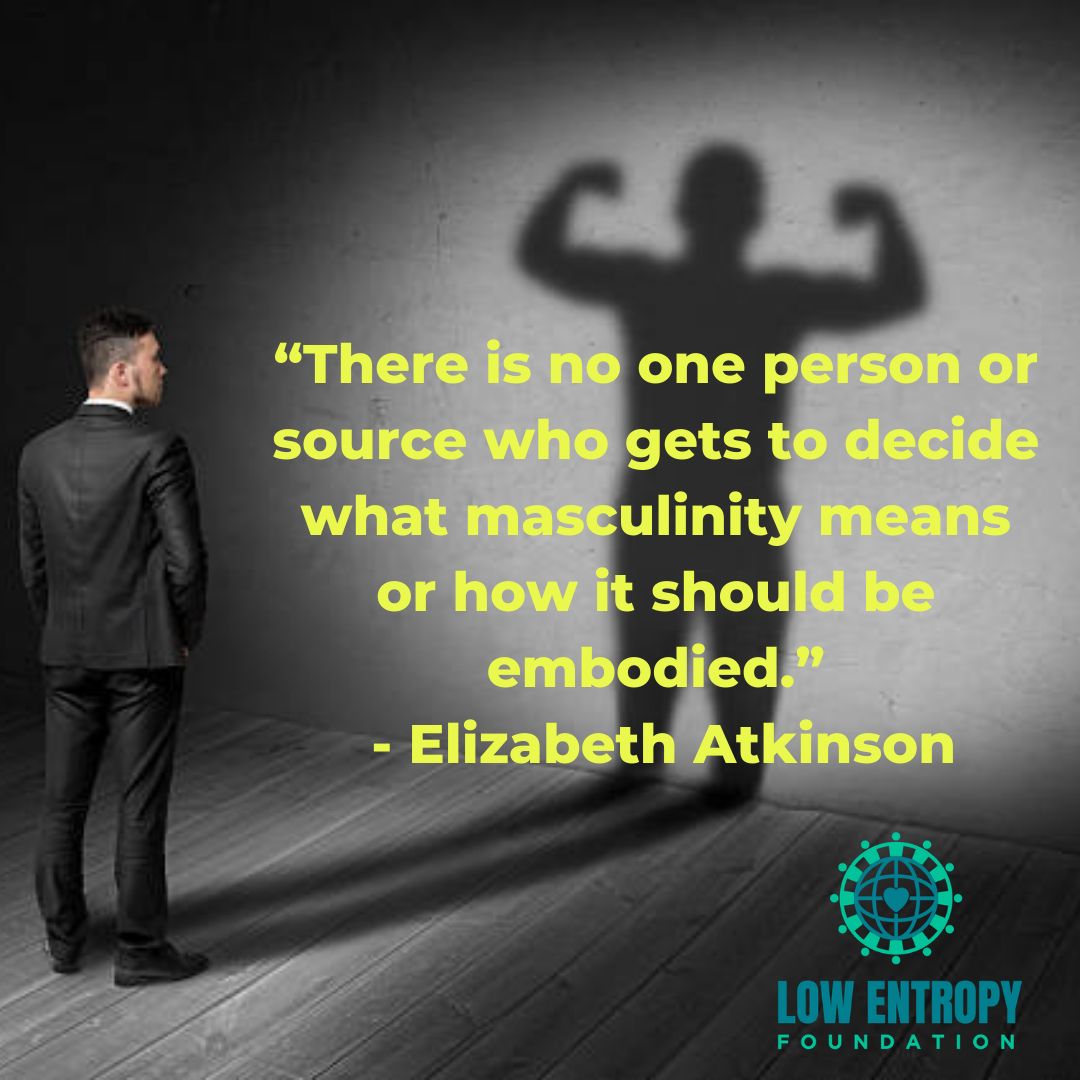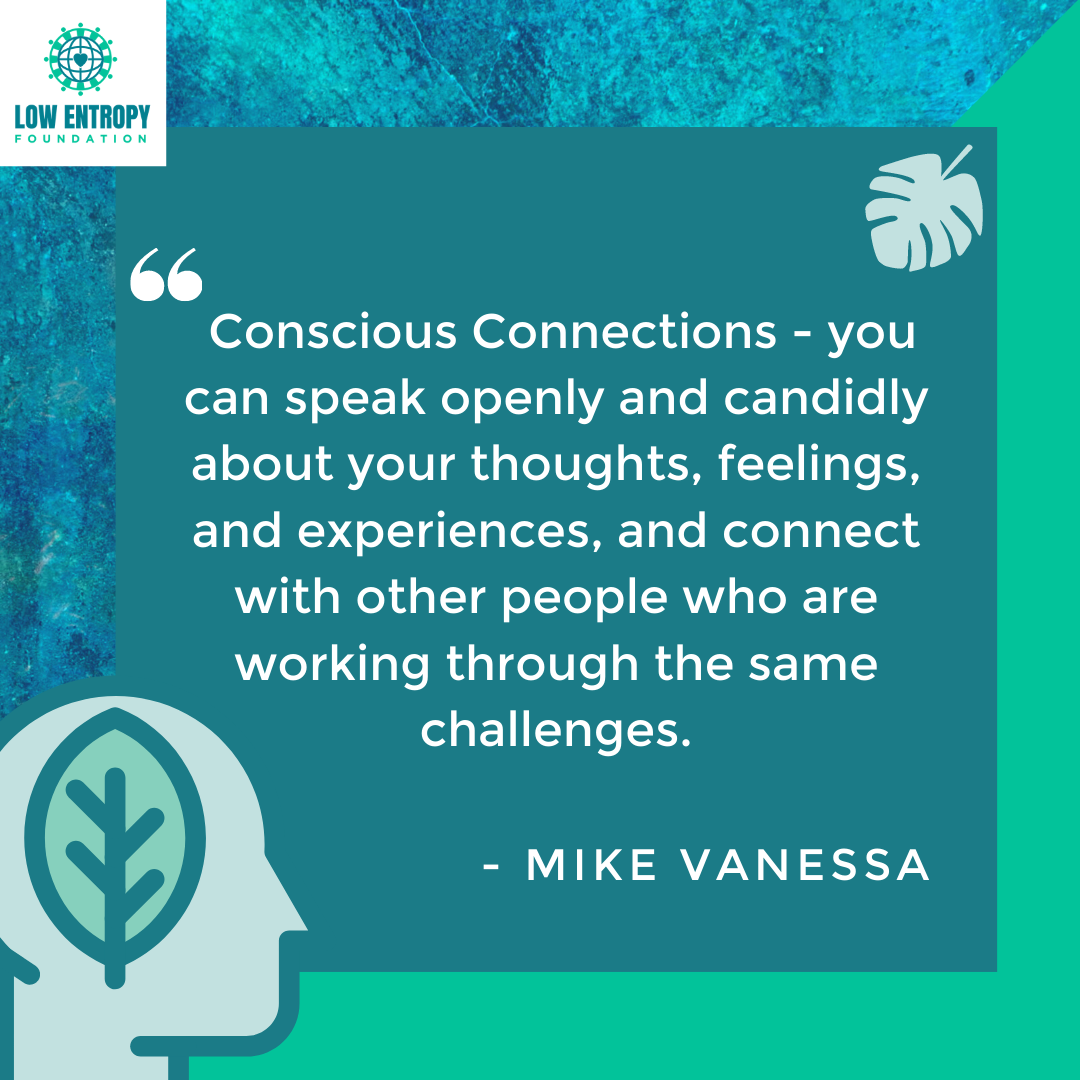Low Entropy Volunteer Writer Grace Cheng offers a primer on empathy – what it is, why it’s important and how to cultivate it.
To me, empathy is the ability to emotionally understand what others are feeling, seeing things from their points of view and putting yourself in their situations. Empathy is one of the building blocks of a healthy relationship. Like other life skills, empathy can be learned and developed. Having the ability to be more empathetic can benefit our lives in many areas. We are able to connect with and understand our spouses, friends, families, coworkers and even strangers at a much higher level when we master how to be more empathetic.
Empathy is a powerful tool that helps maintain social order and cooperation. It allows people to understand and relate to others. Empathy can be used to build intimacy, trust and belonging with people. It is also the feeling that makes it hard to see others suffer.
Empathy often encourages self-sacrificing behaviors, and empathy-based kindness has been shown to increase cooperation and forgiveness, form stronger relationships, decrease aggression and judgment, and improve our mental and physical health.
You can tell if someone is an empathetic person by observing the following behaviours:
- They are good at listening to what others are saying.
- People are sharing their problems and expressing their feelings with them.
- They are good at understanding how other people are feeling.
- They often think about how other people feel.
- Other people go to them to seek advice.
- They often feel overwhelmed by tragic news and events.
- They offer to help others when they are suffering.
- They deeply care about others.
Here are some tips to become more empathetic:
1. Make listening to a top priority
Listening is particularly important because most of us speak much more than we listen. Empathy starts when you intentionally listen for emotions, so try to pay close attention to the signals people are giving out, because they can indicate what people are feeling. Before you connect with what others are feeling, you must recognize their emotional expressions. Active listening can strengthen your understanding in being more empathetic.
The following are steps to becoming a better listener:
- Give your undivided attention to conversations: This means not using smartphones, tablets, or laptops when people are speaking. It means actively listening to what they have to say and making eye contact with them.
- Let the other person speak: This means giving them time to finish what they have to say and not interrupting their conversations.
- Summarize your understanding back to the other person: Once the other person has finished talking, summarize your understanding back to them and verify whether you understood what they were trying to say.
- Ask the other person some insightful and relevant questions: Use your curiosity and ask nonjudgmental questions to better understand their perspectives, thoughts and feelings.
- Allow the other person to express their emotions: Let them talk from their heart and share exactly how they feel. This can often give them insights and help them discover their own solutions.
2. Put yourself in the other person’s shoes
It is quite easy for all of us to comment on and judge others. Some of us have undoubtedly accused others of overreacting, or told someone, “I don’t understand why you are so upset.” However, if you put yourself in their shoes then maybe you would be able to understand their pain and suffering. Once you do that, you can start to experience the emotions that they are going through and understand things from their point of view. This would allow you to better connect with them.
3. Express your care and concern to others
When people tell you their problems, chances are that they do not feel well and want your emotional support. This is the time to show your care and concern for them by asking, “How are you feeling?” or “Is there anything I can do for you?” If you know each other well, you can offer to talk to them on the phone or meet up with them, which can make a tremendous difference. If you are both comfortable with it, you can give them a big hug to show that you care.
4. Acknowledge the other person’s feelings
One of the biggest issues in communication is that most people do not acknowledge the other person’s feelings. Acknowledging is a way to communicate that you understand how the other person is feeling. You can acknowledge their feelings by simply saying, “I am so sorry to hear that,” or “I can hear your pain.”
5. Make yourself vulnerable to others
When you allow yourself to be vulnerable to others by getting into the other person’s emotions, it can enrich your relationships and form deeper connections. When you share your experiences of emotions such as anger, anxiety, shame and sadness, you can open opportunities for others to empathize with you.
Being vulnerable can build up your empathy by allowing you to feel the value of empathy through reflection. This can increase your commitment to being more empathetic to others. You can gain more confidence and comfort in navigating hard emotions during conversations with others.
6. Take action and offer your help to others
Having empathy involves adopting the emotions of others, but not their external situations. Knowing what the other person is going through can help you better identify their needs. If you are able to do so, offering to help others can make a big difference. This puts empathy into action and helps to maximize well-being.
7. Show your emotional support to others
Most importantly, for empathy to be effective, you need to show emotional support to people. This means giving them your trust and affirmation, as well as encouraging them. You should let them know that, no matter what happens, you will always support them. Sometimes what people are looking for are not your solutions, but your empathy and support.
Our world can certainly benefit from having more empathy for others. By learning how to become more empathetic, you can make a difference by creating peace and harmony in our world. So the next time you see someone having a hard time, make sure you listen and share, and identify what you can do to help them.
Was there a time when someone else’s empathy helped you? Tell us your stories in the comments below, or in person at a Conscious Connections meeting!







